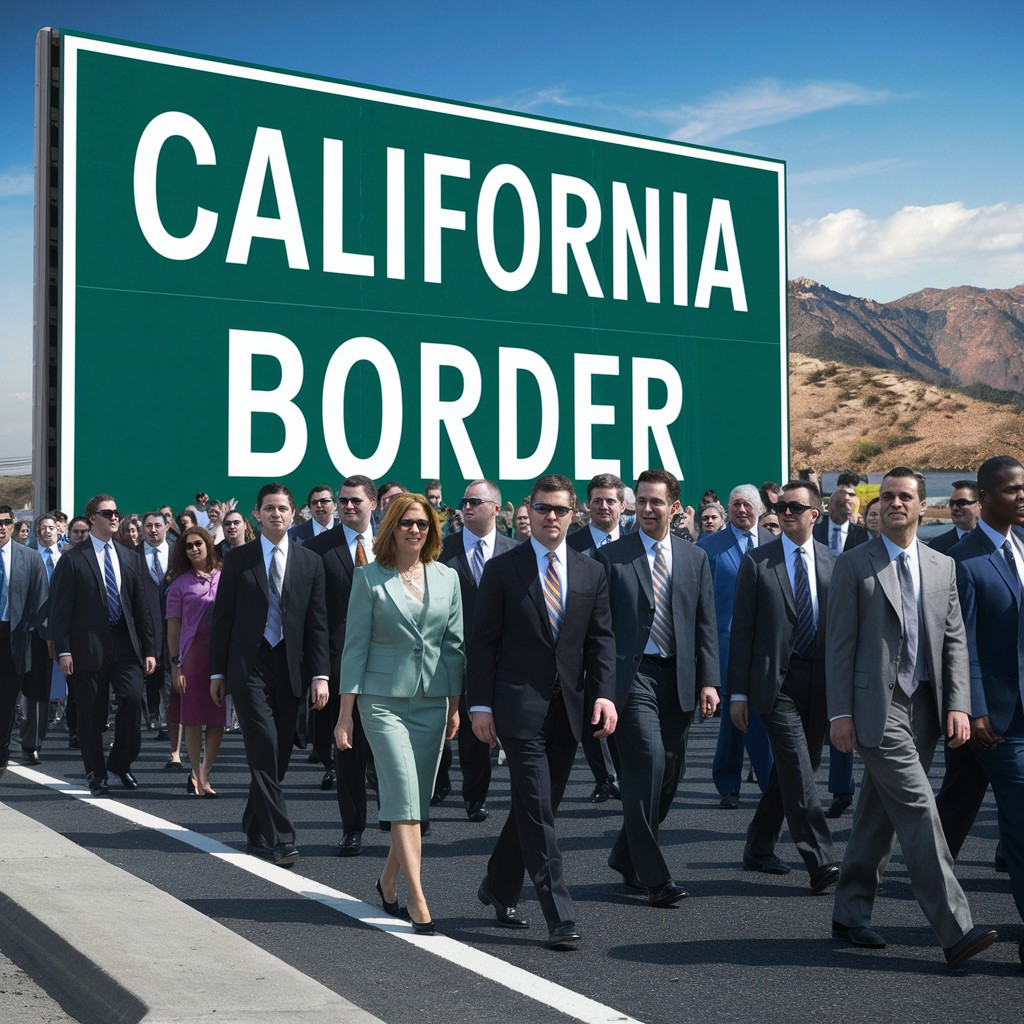What’s Happening
A recent poll of adult California residents shows the vast majority are satisfied with the state, but about 40% are considering leaving. Only 18% of those say they are considering a move “very seriously.”
The major reason given for a possible move is economic: over 60% say living expenses are motivating their planning.
The poll doesn’t mention taxes. Presumably, however, the 18% of those who are very seriously considering changing residency because they disagree with “California’s policies and laws” may have taxes in mind.
The poll can be found here.
The poll caused quite a media stir. That’s to be expected since it was carried out in a partnership between Strategies 360 (a research company) and the Los Angeles Times (which published it as a front-page story).
However, the poll doesn’t really add much insight into the actual patterns of out-migration from California as it relates to tax policy. The poll didn’t include socio-economic data. The overarching concern for cost of living suggests that those considering a move out of state are not top-bracket taxpayers.
Other, more granular studies have been a little more helpful on the issue of out-migration by high-income residents. Specifically, the UC San Diego study concluded that there was no mass exodus of “millionaires” from California (as of 2021), despite media reports on high-profile exits (for example, Elon Musk and Tesla relocating to Texas with much fanfare). The study did find a shift in which more middle-class taxpayers were leaving California than historically was the case. This reinforced other poll data that the cost of living was a major factor in exits, which has less effect on high-income Californians, and is unlikely to be a motivating factor for them.
____________________________________
The real tax burden of California is the income tax that falls on taxpayers who make over $1,370,000 for married couples filing jointly or $698,000 for single or married separate filers, where the rate skyrockets to 13.3% (14.4% for W-2 compensation starting in 2024)
____________________________________
A more recent poll from the Public Policy Institute of California, which has a nonpartisan reputation, found that California was losing households from all income brackets (again as of 2021). A limitation of the survey was that it defined “higher income” to be $137,000 and up (for a married couple), which by definition doesn’t focus on “millionaires,” the term which usually is meant to gloss the highest income bracket. Indeed, the married filing jointly bracket for $137,000 has a rate of 9.3% in California, which is lower than Hawaii’s rate for the same bracket, and about on par with Oregon and several other high tax states, but is still significant. That’s because California has a lot of tax brackets (nine), with unusually high rates for the top four, and relatively moderate rates for the bottom five.
Our Thought Bubble
Anecdotally, Manes Law has noticed an increase in top-bracket exits from California since 2019. But we don’t attribute this to Golden State malaise. Rather, the unusually high number of large and medium-sized M&As of Silicon Valley startups over the past four years seems a more likely cause. With capital gains in the tens of millions, sometime hundreds of millions of dollars, the tax advantages of leaving California become a powerful motivator when term sheets start appearing. Notably, however, the post-COVID interest rate environment has reduced the number and size of mergers and acquisitions. Presumably, this means fewer startup founders leaving the state for tax reasons. At least for now.
Who Benefits From Changing Residency?
This brings up the issue of who benefits from changing residency from California and moving to a lower income tax state. As discussed in this article, the key phrase here is “income taxes,” as opposed to all other types of taxes. California has the highest income tax rate in the country for taxpayers in the highest bracket. But mid- and lower-bracket income tax rates are moderate. Property taxes are relatively low, mostly as a result of Prop 13 limitation. While California has the highest state-wide sales tax, seven other states have higher average state and local combined sale tax rates. The real tax burden of California is the income tax that falls on taxpayers who make over $1,370,000 for married couples filing jointly or $698,000 for single or married separate filers, where the rate skyrockets to 13.3% (14.4% for W-2 compensation starting in 2024).
For those taxpayers, particularly if they are anticipating a liquidity event involving millions of dollars, issues involving property taxes, sales taxes, or medium income taxes pale in comparison to the tax savings of having nonresident status upon receipt of non-California-source income. Not only by rate, but in absolute terms, the income taxes California impose on the top bracket can be astronomical in those cases. In some situations where the federal Qualified Small Business Stock exclusion applies to the transaction, the California tax on capital gains may actually exceed the federal tax, because California doesn’t allow the exclusion at the state level.
In contrast, mid-bracket taxpayers may save some taxes by changing residency, but in absolute terms the savings may not be worth the cost and inconvenience that moving out of state may entail. This is especially true if they plan to retain significant contacts with California after changing residency, which inevitably requires planning (that is, cost and inconvenience).
For more information about residency tax planning, this article discusses who benefits from residency planning, and who doesn’t.
________________________
Manes Law is the premier law firm focusing exclusively on comprehensive, start-to-finish California residency tax planning. With over 25 years of experience, we assist a clientele of successful innovators and investors, including founders exiting startups through IPOs or M&As, professional athletes and actors, businesses moving out of state, and global citizens who are able to live, work, or retire wherever they want. Learn more about our services at our website: www.calresidencytaxattorney.com.
________________________
No information contained in this post should be construed as legal advice from Justia Inc. or the individual author, nor is it intended to be a substitute for legal counsel on any subject matter. No reader of this post should act or refrain from acting on the basis of any information included in, or accessible through, this post without seeking the appropriate legal or other professional advice on the particular facts and circumstances at issue from a lawyer licensed in the recipient’s state, country or other appropriate licensing jurisdiction.
 California Residency Tax Planning
California Residency Tax Planning



